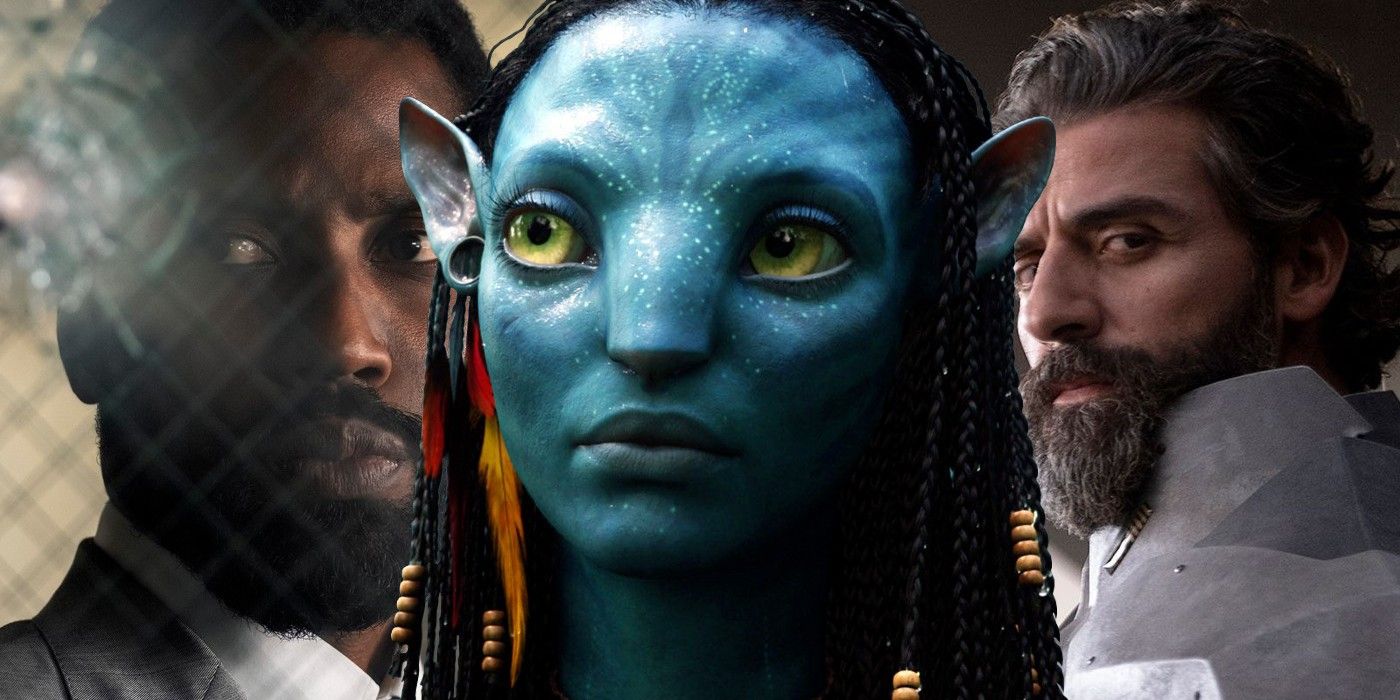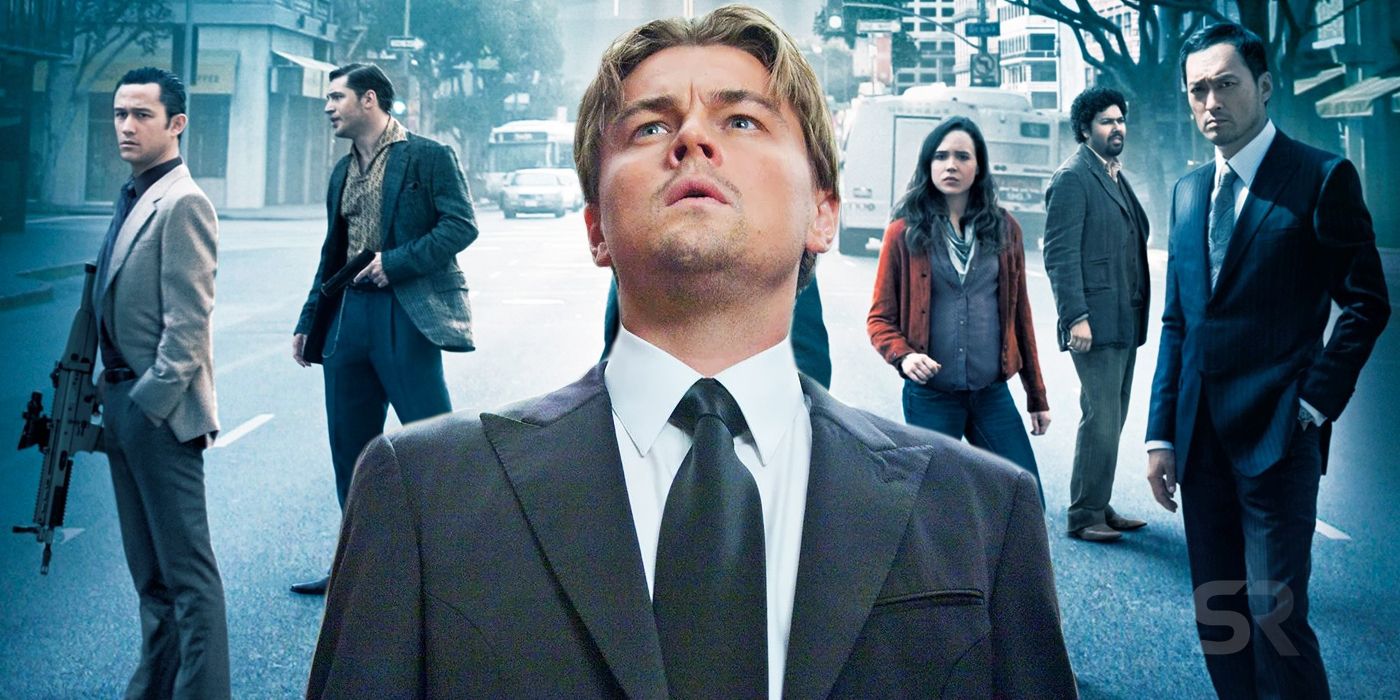The 2020s are bringing back smart sci-fi movies. Whether it's space exploration, artificial intelligence, or the impact of technology on society, the sci-fi genre has never shied away from asking complicated questions about humanity's understanding of how the universe works. Storytellers have long explored these issues through the lens of pop culture, and the last few years have been no exception. On the small screen alone, shows like Westworld, Star Trek: Picard, and Devs have used sci-fi tropes to examine everything from the nature of identity to modern political ideologies.
Mainstream film, however, is another matter. Through-provoking sci-fi has always had a home in the world of independent and/or non-American cinema (see High Life for a recent example), yet there's been a noticeable downtown in wide releases that prioritize big sci-fi ideas over spectacle over the last few years. For the most part, the exceptions to that rule have either struggled to cover their budgets or failed to make much of an impact at the box office.
With Christopher Nolan's Tenet, Denis Villeneuve's Dune, and James Cameron's Avatar sequels on the horizon, the next decade has the potential to be a more rewarding time for fans of smart sci-fi movies. But before we get into that, it's worth looking back at why these types of sci-fi films started to go out of fashion in the latter half of the 2010s.
Hollywood Stopped Making Smart Sci-Fi Movies
In the beginning, the 2010s were a great time for smart mainstream sci-fi films. The decade kicked off with Nolan's Inception, which was widely praised as a worthy successor to The Matrix and similar blockbusters that successfully combine crowd-pleasing thrills with mind-bending sci-fi concepts. Four years after that, Nolan took audiences into outer space with Interstellar, a box office-topping tentpole with shades of 2001: A Space Odyssey, but a much richer emotional core. Around the same period of time, Gravity and The Martian earned big bucks while bringing in lots of critical praise (and, in Gravity's case, Oscar wins) for the way they use space as a means for examining issues like the effects of emotional trauma and the importance of rational, scientific thinking. Even big-budget sequels and prequels like 2010's TRON: Legacy and 2012's Prometheus wrestled with ideas about gods, monsters, and creators in-between sequences of light cycle races and people getting murdered in the face by not-so-friendly alien lifeforms.
Gradually, things started to change after that. Acclaimed films like Ex Machina and Arrival explored the intricacies of human nature and communication while telling stories about A.I. individuals and extraterrestrials in 2015 and 2016, yet were both substantially less successful commercially than many sci-fi offerings from just a few years earlier. Then, in 2017, Blade Runner 2049 became the last truly "smart" sci-fi movie to make a significant dent at the box office, but didn't make nearly enough to cover its costs. Part of the problem was these films skewed more strictly towards older moviegoers than stuff like Inception (which has a relatively broader appeal), doubly so with the R-rated Ex Machina and Blade Runner sequel. This was also when shared universe movies and superhero films went from being extremely popular to the dominant form of popular entertainment in Hollywood. Thought-provoking mainstream sci-fi movies didn't completely go away after that (both Annihilation and Ad Astra came out in the last two years), but they weren't thriving the way they were a few years earlier, either.
Smart Sci-Fi Movies Are Finally Returning
Fortunately, it seems things could be on the verge of changing in that respect. Nolan is in the final stages of finishing his new original sci-fi tentpole Tenet, a James Bond-style international espionage thriller with the twist being its heroes must use something called "time inversion" to save the day. Elsewhere, Arrival and Blade Runner 2049 director Villeneuve is preparing Dune, his adaptation of the first half of Frank Herbert's landmark 1965 sci-fi novel about royal families fighting for control of the planet Arrakis and its precious natural resource Melange or "The Spice" (a substance necessary for interstellar travel). Finally, after more than ten years of development, Cameron is readying to take moviegoers on not just one, but four return trips to the world of Pandora with his Avatar sequels. Their actual plots are mostly under-wraps right now, but will undoubtedly carryover the environmental themes from the first Avatar, along with its sci-fi ideas about technology that can transfer a human's consciousness from one body to another (be it man-made or alien in origin).
They're far from the only announced sci-fi movies that promise to mix brains with spectacle. There's also the upcoming Bios, a sci-fi drama starring Tom Hanks as a inventor - and the last man on earth - who decides to build an android to keep him company; The Tomorrow War, The LEGO Batman Movie director Chris McKay's furtistic action-thriller where, in the hopes of winning a battle with an invading alien army, scientists devise a way to "draft" the greatest soldiers from the past to fight in the present; and The Matrix 4, a revival of the franchise that, if director and The Matrix co-creator Lana Wachowski's recent work is any indicator, could be even more bonkers than the original movie. That list is far from all-encompassing either, which just goes to show how these types of sci-fi features have the potential to come back into fashion.
How Sci-Fi Movies In The 2020s Can Do Better
There's no surefire recipe for success in Hollywood, so there's no way of making certain this brainier class of mainstream sci-fi entertainment can stick around... though, there are ways of improving its chances. For one, these movies have to try and appeal to as wide as audience as possible; many people were understandably flabbergasted when the Tenet trailer premiered on Fortnite, but it was a smart way of selling the movie to a younger crowd (namely, teens who play Fortnite) that's never been the target audience for Nolan's sci-fi tentpoles. This could be particularly difficult for something like Dune, considering the film has a very good chance of being Rated R, like most of Villeneuve's movies. (Herbet's source material certainly lends itself to that rating.) This is where marketing once again comes into play; Dune has a star-studded cast that includes big names ranging from young heartthrobs like Timothée Chalamet to Star Wars and Marvel/DC actors (Oscar Issac, Jason Momoa, Zendaya) and seasoned veterans of the big screen (Javier Bardem, Charlotte Rampling), so its promotional campaign should use this to sell the film to people across the board - including, those who might not necessarily be excited to watch a serious space opera about geopolitical conflict.
Even the Avatar sequels come with their faire share of risks. It's never wise to bet against Cameron at the box office, yet the first Avatar has left a curiously small cultural footprint for a film that grossed $2.79 billion theatrically (and in 2009, no less). Its use of immersive and photorealistic CGI scenery/characters have also become industry standard in the decade since it premiered, so it's once again up to the marketing to convinces audiences Avatar 2 and its followups will be similarly ground-breaking in the way they use motion-capture to bring settings like the oceans of Pandora to life, but also have a more compelling and less outdated narrative (read: no more white saviors) to go with all the technical wizardry. That will be the key to keeping smart sci-fi movies going strong in general: reminding the masses they can be both entertaining and meaningful, and don't have to choose between one or the other. Do that and there might be hope for them yet.




